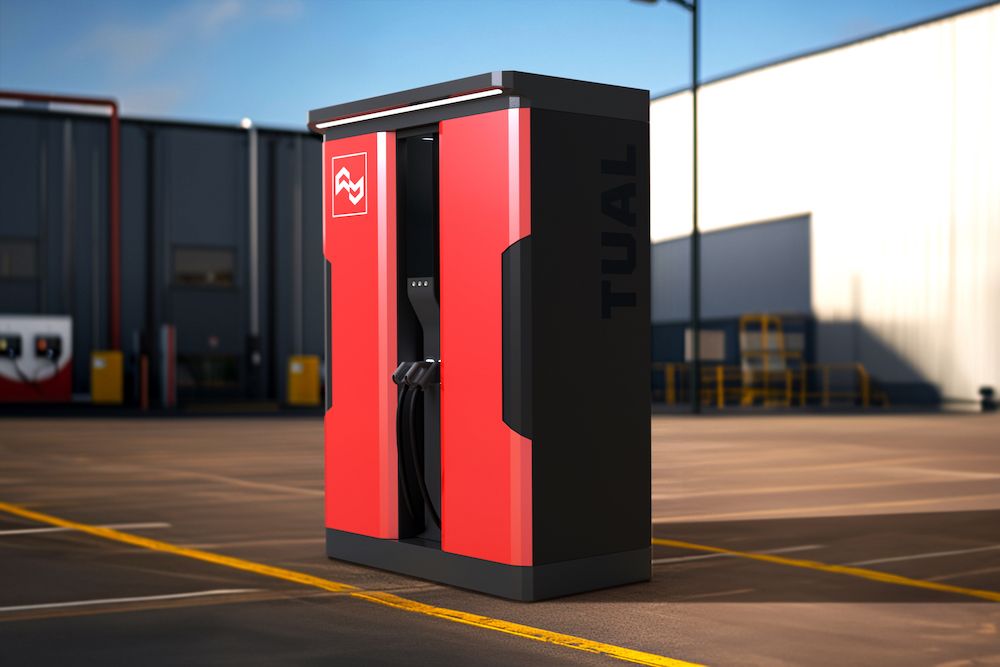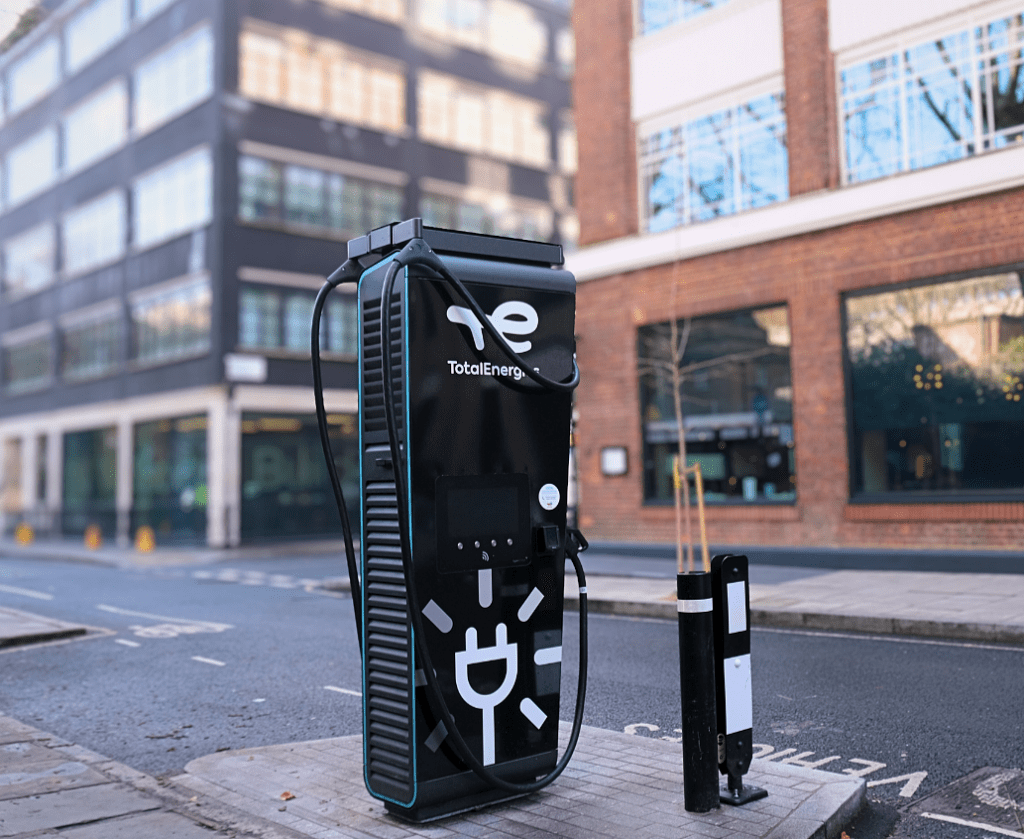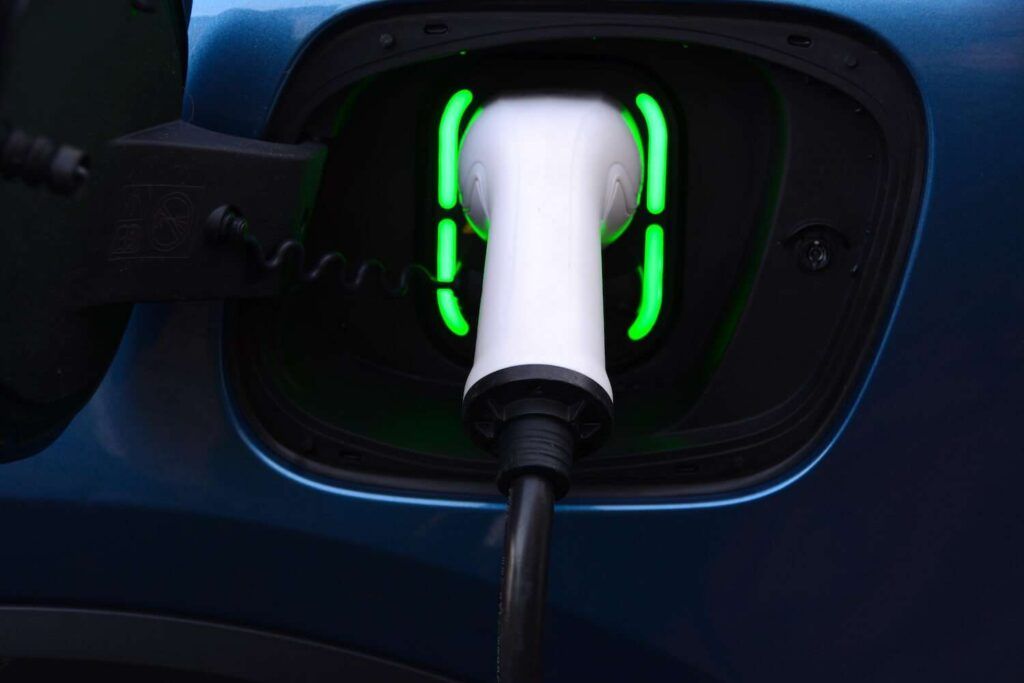TUAL has highlighted how 50 to 80% of possible electric vehicle (EV) charging sites have constrained or absent grid connections.
The swappable powerbanks and charging solutions firm has explained that as a result, obtaining grid upgrades for high-powered charging can make the EV transition challenging for fleets and commercial landlords.
It said that upgrades can take one to three years, with upfront capital expenditure of £150,000 to £3 million, with an average of around £500,000 per site.
As a result, it has emphasised how battery-buffered DC chargers can assist for the transition to commercial EV uptake.
Through combining energy storage and fast DC charging in one package, products such as its PowerUp Charger can assist those sites which limited energy supply.
The charger can make use of a site’s current energy capacity, and make it a viable location swiftly for recharging, drawing and storing available grid power – with renewable power sources also potentially integrated to avoid the need for further battery storage.
Philip Clarke, CEO and Founder of TUAL, said:
“Many users’ confidence in electric vehicles has taken a significant hit, with a commensurate impact on sales, in recent times. Whether it’s fleet operators under regulatory pressure to electrify, or commercial landlords needing to futureproof their sites, the need to accelerate EV uptake has never been greater. But the time and cost it takes to install sufficient charging infrastructure can make this unfeasible for many – especially in the case of those 50% of sites that are leased.
“The status quo is simply untenable. What fleet operators and commercial landlords need are rapidly deployable, cost-effective charging solutions that plug current charging infrastructure gaps, and get them electrifying at the required rate – but in a way that’s genuinely sustainable.”
Image courtesy of TUAL












